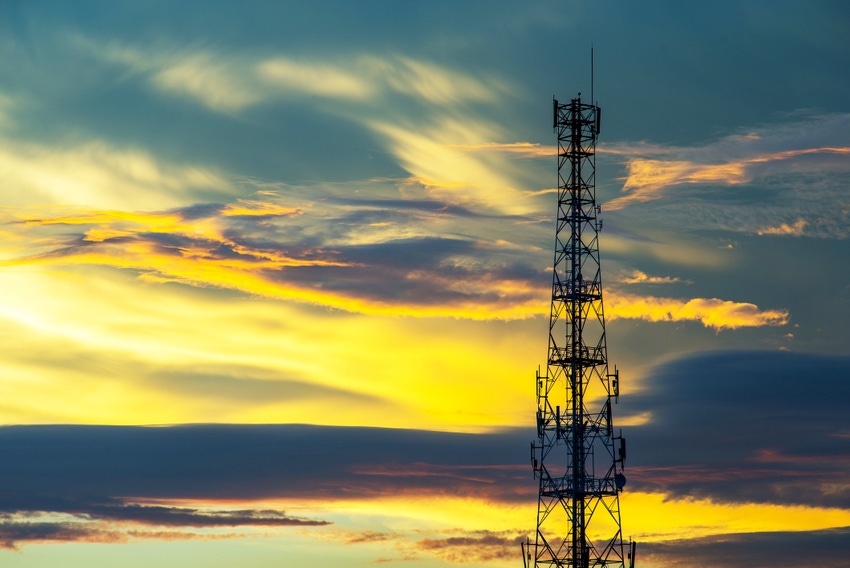Coalition hopes to close rural America’s digital divide
American Connection Project Broadband Coalition formed to advocate for additional action on expanding rural broadband access.
July 9, 2020

Bridging America’s digital divide is a costly goal, but a new coalition of nearly 50 organizations firmly believes it is worth the investment. Convened by farmer-owned cooperative Land O’Lakes Inc., the newly formed American Connection Project Broadband Coalition (ACPBC) will advocate for public- and private-sector investment to bring high-speed internet infrastructure to rural areas, in addition to advocating for policies and contributing its own resources to facilitate remote education, health and mental health services, job opportunities and more, with the goal of connecting and lifting up all American communities through access to modern digital technology.
The Federal Communications Commission estimated in 2017 that it would cost $80 billion to bring high-speed internet to remaining parts of the country that do not have access, while a more recent U.S. Department of Agriculture report estimated that it would require $130-150 billion “over the next five to seven years to adequately support rural coverage and 5G wireless densification.” However, a study from the U.S. Chamber of Commerce’s Technology Engagement Center has found that “better adoption of online tools and digital services by businesses outside metropolitan areas could create 360,000 new full-time jobs in rural areas and add more than $140 billion to the U.S. economy over the next three years.”
“All too often, farmers, business owners and even school children are disadvantaged by being on the wrong side of our country’s digital divide -- a problem that has become more acute as we deal with the challenges of COVID-19, but this isn’t just a rural issue,” Land O’Lakes president and chief executive officer Beth Ford said. “The American Connection Project Broadband Coalition represents a mix of companies from tech, health care, agriculture and more who understand the ramifications of our country’s broken internet infrastructure and who have the willingness and expertise to help address this need. We are so grateful to our partners who recognize that connecting all Americans is possible and who are willing to work with us to close our country’s digital divide and invest in our collective future.”
Currently, ACPBC is made up of 49 businesses, trade associations, nonprofits, municipalities and academic institutions. In addition, the coalition works with organizations such as The Business Roundtable and individual political leaders to jointly advance their efforts in this area.
“In rural communities, internet connection is a lifeline every day, with added urgency during the COVID-19 pandemic,” said Dr. Barb Glenn, CEO of the National Association of State Departments of Agriculture (NASDA). “As advocates for rural resiliency, NASDA is proud to join nearly 50 organizations in continuing our work to expand broadband access to areas where it’s needed most. We look forward to working with the Administration, Congress and the diverse members of this group to develop innovative solutions to uplift agriculture and rural America through enhanced broadband access.”
In conjunction with the launch of the coalition, the companies sent a letter to President Donald Trump and congressional leadership urging them to “enact groundbreaking broadband connectivity legislation that includes the necessary resources to close the digital divide in this country.”
In the letter, ACPBC added, “As we look to help our nation recover from this global pandemic, let’s make a smart investment in the future competitiveness of this country and ensure that all Americans, in both rural and urban areas, are able to access the internet.”
The member companies also collaborated in a number of ways prior to launch. Throughout the COVID-19 pandemic, Land O’Lakes and other partners have established free guest Wi-Fi access points outside Land O’Lakes’ business locations in more than 150 communities. For example, Microsoft donated hotspot boosters to further the reach of the guest Wi-Fi so area residents could safely conduct business, communicate with family and friends and carry out other daily activities online while staying socially distanced in their cars.
In April, ACPBC sent a letter to all 50 U.S. governors asking for their support of the initiative and inviting them to leverage their own resources to add more Wi-Fi hotspot locations around their states. In addition, the coalition asked states to support policies that would make telemedicine more accessible and affordable and urged their support of robust state and federal infrastructure investments to solve rural internet connectivity challenges. Separately, the coalition worked closely with governors from 11 states who recently called on Congress to pass groundbreaking legislation to bridge the digital divide.
ACPBC said it plans to expand its membership and continue its advocacy work in the coming months. Many of the members have taken steps individually to help close the digital divide through donating funds and equipment, and part of the group’s activity will be to identify new ways to work together to maximize the reach of these actions and fill needs that have not previously been met.
You May Also Like



